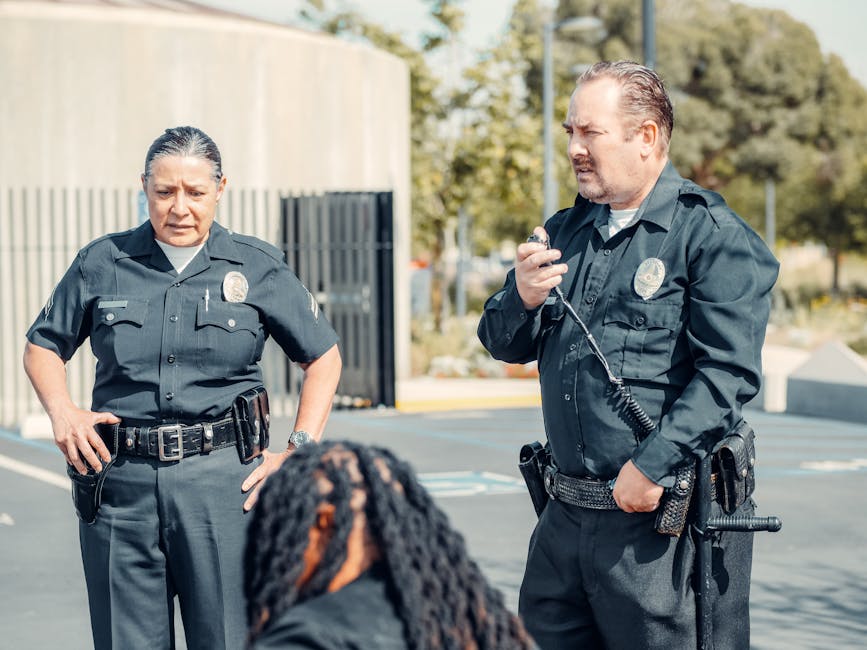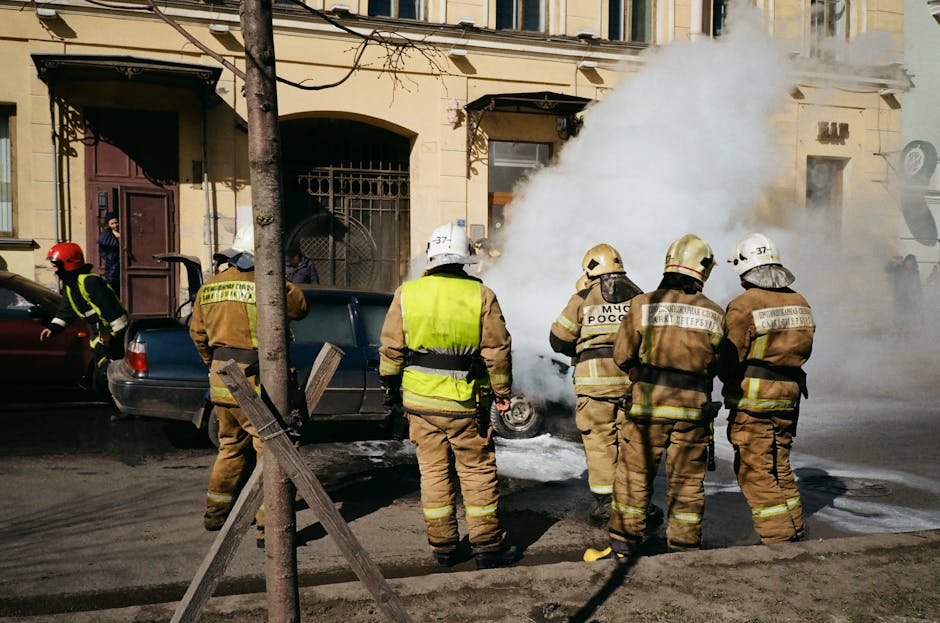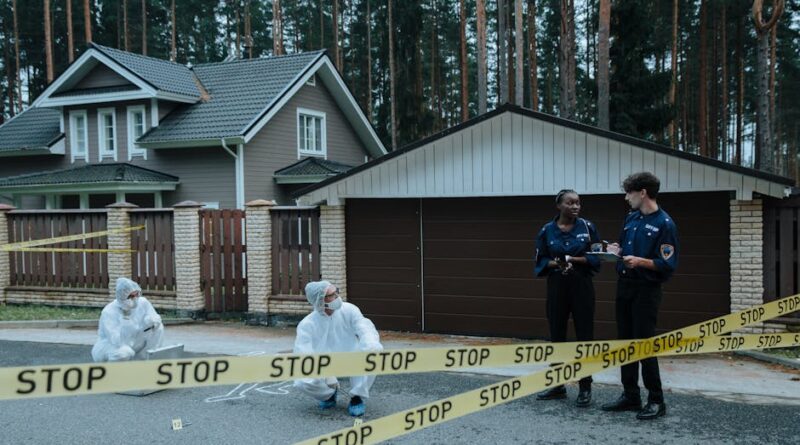Key Roles in Incident Response Teams
Imagine your company just experienced a data breach. Panic sets in. What do you do next? This is where incident response teams come into play. They are the heroes who jump into action to solve problems and protect sensitive information. But who exactly makes up these teams? Lets break down the key roles in incident response teams.
What is an Incident Response Team?

An incident response team is a group of experts dedicated to managing and mitigating security incidents. They respond to threats, investigate breaches, and implement measures to prevent future incidents. Think of them like firefighters for your dataready to tackle any blaze that threatens your business.
Why Are Incident Response Teams Important?

Cyber attacks are on the rise. According to a recent report by Cybersecurity Ventures, cybercrime will cost the world $10.5 trillion annually by 2025. This alarming statistic highlights the need for strong incident response teams. They help minimize damage, protect data, and maintain customer trust. Without them, businesses can face severe financial and reputational harm.
Who Are the Key Players in Incident Response Teams?

Now that we understand the importance, let’s look at the key roles within an incident response team.
1. Incident Response Manager: The Team Leader

The incident response manager coordinates the teams efforts. They develop response plans and ensure everyone knows their roles. Think of them as the captain of a ship, steering the crew through rough waters.
Key responsibilities include:
- Leading training sessions to prepare the team.
- Communicating with upper management about incidents.
- Conducting post-incident reviews to improve future responses.
2. Security Analyst: The Detective
Security analysts are the detectives of the team. They dig into the details of incidents, gathering and analyzing data. Their goal is to understand how a breach happened and what can be done to prevent it in the future.
They perform tasks like:
- Monitoring security systems for unusual activity.
- Conducting vulnerability assessments.
- Gathering intelligence about potential threats.
3. Forensic Specialist: The Data Sleuth
Forensic specialists are like crime scene investigators. They examine digital evidence after an incident to determine what happened. They use specialized tools to recover deleted files, analyze malware, and trace unauthorized access.
Key activities include:
- Documenting the incident for legal purposes.
- Recovering data from compromised systems.
- Working with law enforcement when necessary.
4. IT Support: The Tech Savvy Heroes
IT support staff play a vital role in incident response. They help implement the technical fixes needed to restore systems and services. They ensure that all systems are back online and functioning properly.
Their duties often involve:
- Restoring systems from backups.
- Applying patches and updates to prevent future breaches.
- Reassuring employees about system security.
5. Communication Specialist: The Voice of the Team
The communication specialist manages how the team communicates with the outside world. They prepare press releases and help maintain transparency with customers and stakeholders. Think of them as the public relations expert who keeps everyone informed.
Key tasks include:
- Crafting clear messages about incidents.
- Handling media inquiries.
- Providing updates to the community as needed.
How Do These Roles Work Together?
Each role in the incident response team is important, but their true strength comes from working together. The incident response manager leads the team, while the security analyst uncovers threats. The forensic specialist gathers evidence, and IT support fixes the problems. Meanwhile, the communication specialist keeps everyone in the loop.
By collaborating, they can minimize the impact of an incident and restore normalcy more quickly.
What Skills Are Essential for Each Role?
Different roles require different skills. Lets break down the essential skills for each key player.
Incident Response Manager
- Leadership and decision-making skills.
- Strong communication abilities.
- Knowledge of incident response frameworks.
Security Analyst
- Analytical thinking and attention to detail.
- Familiarity with security tools and technologies.
- Ability to work under pressure.
Forensic Specialist
- Expertise in digital forensics tools.
- Strong investigative skills.
- Knowledge of legal and regulatory requirements.
IT Support
- Technical skills in system administration.
- Problem-solving abilities.
- Familiarity with backup and recovery processes.
Communication Specialist
- Excellent writing and speaking skills.
- Ability to convey complex information clearly.
- Experience in crisis communication.
How Can Businesses Build an Effective Incident Response Team?
Building an effective incident response team takes time and planning. Here are some steps businesses can follow:
- Define clear roles and responsibilities.
- Invest in training and ongoing education.
- Develop and regularly update incident response plans.
- Conduct drills and tabletop exercises to test response capabilities.
By taking these steps, businesses can create a strong incident response team ready to tackle any challenge.
What Are the Common Misconceptions About Incident Response Teams?
Many people have misconceptions about incident response teams. Here are a few common ones:
1. Incident Response Teams Are Only Needed After an Attack
Some believe these teams only spring into action after a breach. In reality, they also work proactively by assessing risks and creating prevention strategies.
2. Incident Response is All About Technology
While technology plays a significant role, human expertise is crucial. Team members need to interpret data and make decisions based on their findings.
3. Incident Response is a One-Time Effort
Incident response is ongoing. Teams must continually learn from incidents and update their strategies to adapt to new threats.
Real-World Example: How an Incident Response Team Saved the Day
Lets look at a real-world example. In 2020, a major news organization faced a ransomware attack. Their incident response team quickly mobilized. The manager led the response, while analysts worked to identify the threat. Forensic specialists gathered evidence, and IT support restored systems from backups.
This teamwork allowed the organization to minimize downtime and protect sensitive data. It also reinforced the importance of having a well-prepared incident response team.
Closing Thoughts: Why Every Business Needs an Incident Response Team
In todays digital world, threats are everywhere. An effective incident response team can mean the difference between a minor setback and a major disaster. By understanding the key roles and their responsibilities, businesses can better prepare for potential incidents.
So, what can you do? Start by assessing your current security measures. Build or strengthen your incident response team. And remember, the best defense is a good offense.
For more information on cybersecurity best practices, check out this CISA resource.



